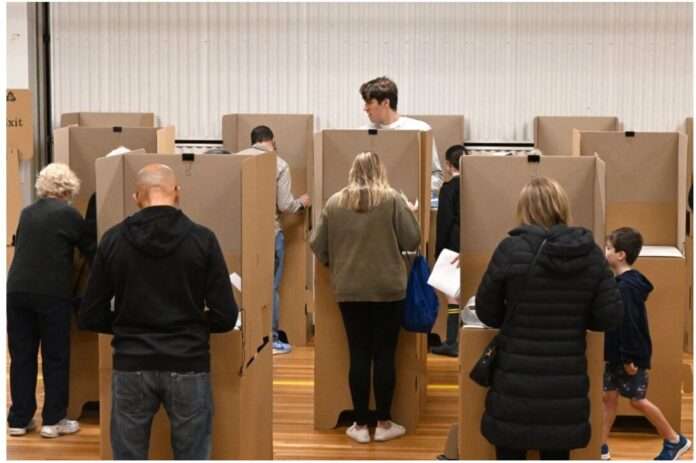Australian voters are being subject to disinformation and increasing AI’s (artificial intelligence) influence on election matters, a Senate inquiry has been told.
During a recent Senate hearing, representatives from the Australian Media Literacy Alliance (AMLA) pointed out that there had been reports about concerns that deep fakes might play a role in the upcoming election.
Deep fakes are artificial images or videos (generated by AI or software) of a person in which their face or body has been digitally manipulated to appear as somebody else.
They can be used by malicious actors to spread false information or cause harm to individuals.
Nevertheless, authorities have not been able to tackle the rise of those materials.
“The Australian Electoral Commission’s (ACE) warning that there’s no legal way of stopping deep fakes of candidates highlights risks from generative AI tools, turbocharging myths and disinformation, and changing the media ecosystem with impact across all our democratic activities,” AMLA chair Anita Planchon said.
Ms. Planchon’s concern was echoed by AEC representatives who said misinformation and disinformation were rising in Australia.
“We are seeing an increase over the last few years of conspiracy theories,” Electoral Commissioner Tom Rogers said.
“Some of them you could probably understand. Some of them are absolutely mad. Things like the AEC using Dominion voting machines … the World Economic Forum is running our elections, and we’re tools of the U.N.”
Amid the rising risks, Ms. Planchon said there was an urgent need to improve the media literacy of all Australians.
Low Media Literacy
Ms. Planchon said a 2021 AMLA survey showed that slightly over half of Australians (56 percent) were confident that they could find the information they needed online.
However, only 39 percent of adult Australians were capable of checking if the information they found online was true.
In addition, three in 10 adults said they had received some form of media literacy support in their lifetime.
AMLA member Patricia Hepworth said people with low income levels, lower levels of education, who live in regional and remote areas, and live with a disability were substantially among those having low media literacy.
The same situation was true for older Australians, she added.
“Australians over the age of 75, for example, have some of the lowest levels of media literacy,” Ms. Hepworth said.
Ms. Planchon noted that Australians’ low level of media literacy would continue if there were no ongoing lifelong civics education for citizens, posing risks to society.
“Many Australians will have low or false or misinformed understandings of government systems and policies with the potential to become disengaged, manipulated, and distrustful of institutions,” she said.
Voting Issues
Apart from the issue of low media literacy, government agencies were also concerned about the high informal voting rate and low voting participation within a portion of the population.
According to Mr. Rogers, the seats where the informality rates were highest in the last couple of elections tended to be in culturally diverse areas.
The electoral commissioner said AEC’s research showed that informality was driven by factors such as English as a second language, the number of candidates on the ballot paper, and the difference in the voting systems between state and federal elections.
Another AEC representative said Australia’s complicated voting system also contributed to informal voting among citizens.
“It’s easy for us to lose sight of the fact that we’ve actually got one of the most complicated voting systems in the world,” he said.
“Differentiating the House of Representatives and the Senate adds another layer of complication.”
Currently, Australia employs the preferential voting system for the federal election, which differs significantly from the first-past-the-post (simple majority) system used in the United States, the UK, and Canada.
Furthermore, there are different steps and requirements for electing an MP and a senator, which confuses some voters.







